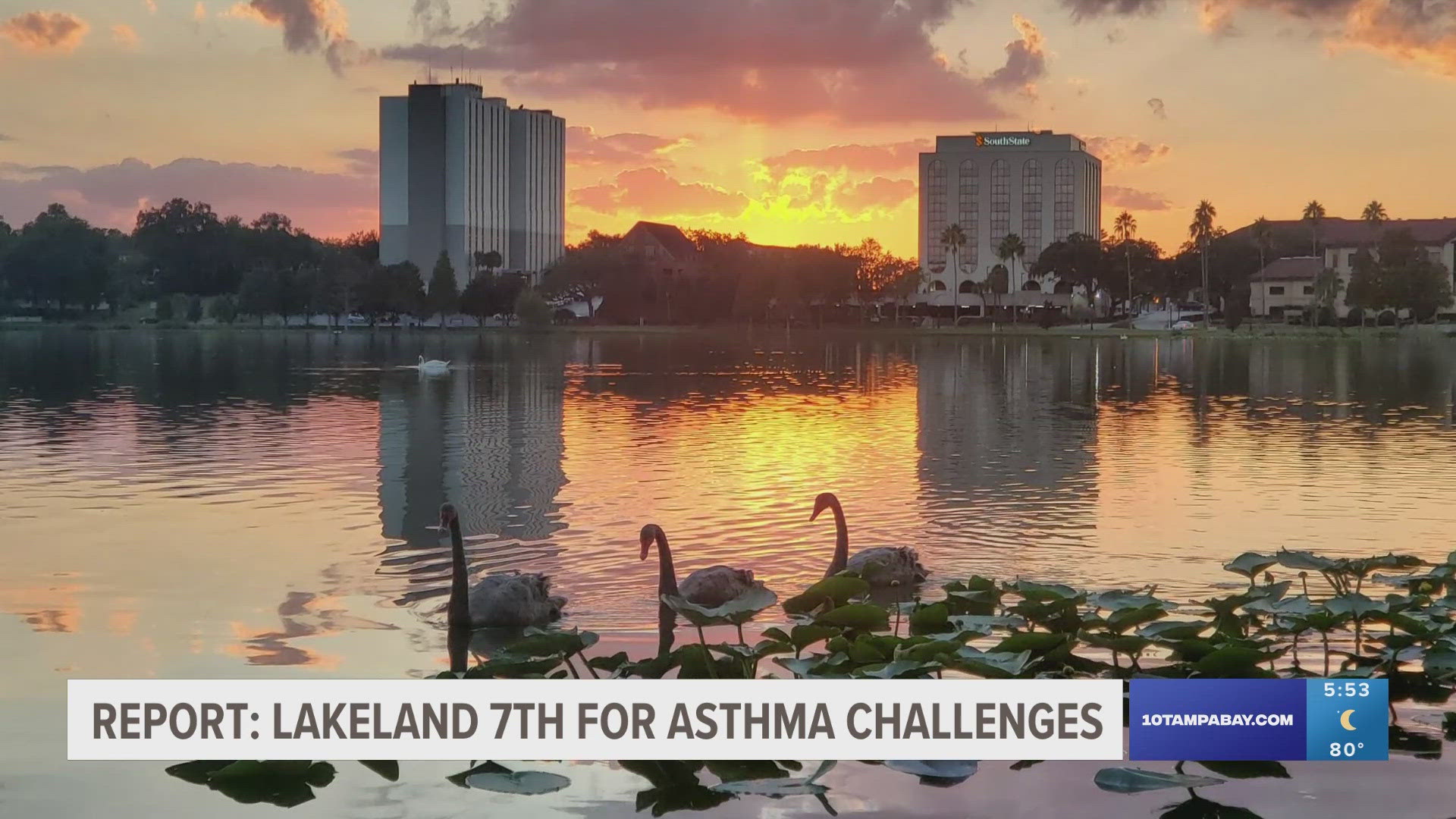LAKELAND, Fla. — The Asthma and Allergy Foundation of America (AAFA) released a new report which ranks the top "Asthma Capitals" in the United States. A city in Florida made the top 10 list.
According to the report, Lakeland is the seventh most challenging place to live with asthma in 2024 based on three main categories: estimated asthma prevalence, emergency department visits due to asthma and fatalities from asthma.
The city has "higher-than-average" asthma prevalence, the report said. That's especially true when it comes to regional rankings. AAFA listed Lakeland No. 1 in comparison to other cities in the south, including Baltimore, Maryland and Charleston, South Carolina.
Lakeland is also reportedly the third highest when it comes to emergency room visits from asthma, but it had an "average number" of asthma-related deaths in the report.
The report explained that the following risk factors contribute to these outcomes:
- Poverty
- Air quality
- Access to specialist medical care
- Pollen allergy
- Medicine use
- Tobacco policies
- Lack of health insurance
AAFA ranked Lakeland No. 3 when it came to having the fewest asthma specialists per asthma patient.
"Access to appropriate medical care is dependent upon different factors, including socioeconomic status, insurance status, and availability of specialists in nearby locations," AAFA's report stated. "The lack of availability of nearby asthma specialists may be associated with poor asthma outcomes."
The city was also listed as No. 9 in terms of cities that have the highest number of uninsured residents.
"As of 2024, only 10 states have yet to expand their Medicaid programs: Alabama, Florida, Georgia, Kansas, Mississippi, South Carolina, Tennessee, Texas, Wisconsin, and Wyoming," the report read. "For the millions of uninsured people in these states, the decision not to expand has left them without an option for affordable health insurance."
According to AAFA, there are several triggers that hit their peak during September, such as higher mold counts, respiratory illnesses and extreme weather events such as hurricanes, heat waves and extreme thunderstorms. The organization said it's important to try and avoid these triggers when possible.
The full report can be found by clicking here.

